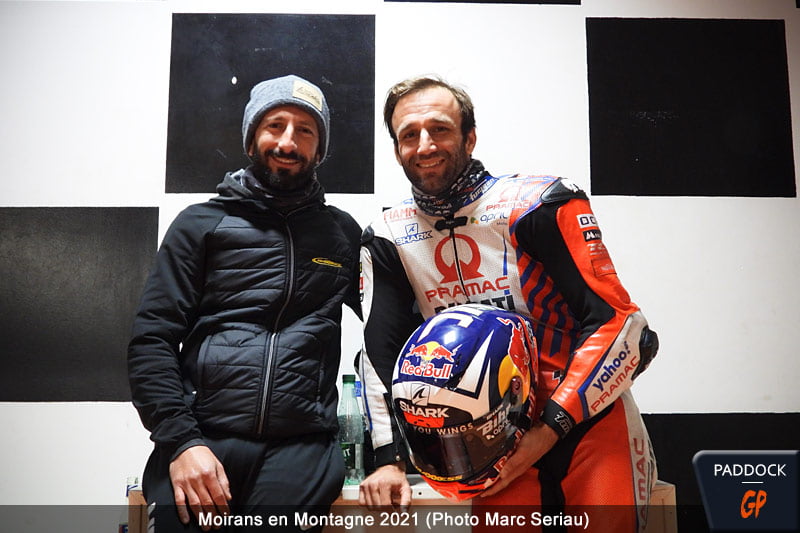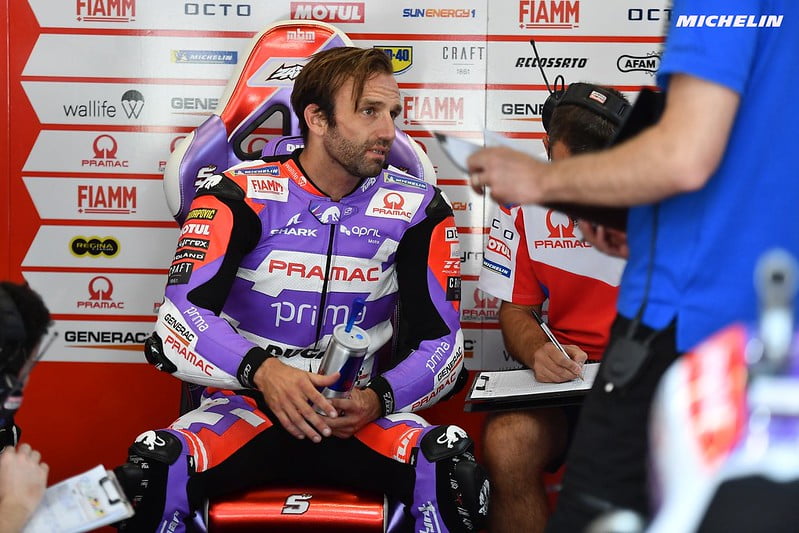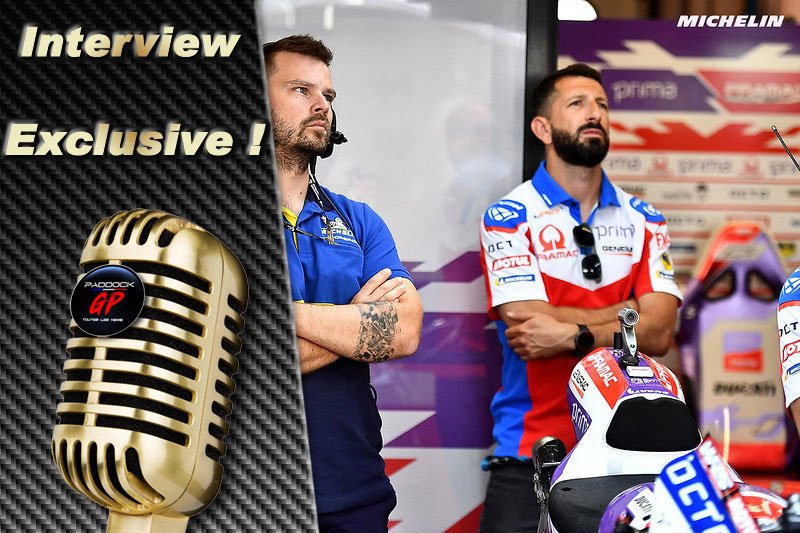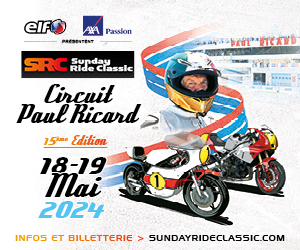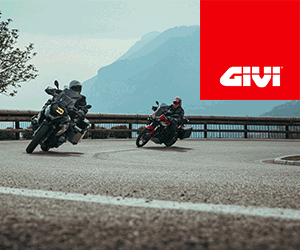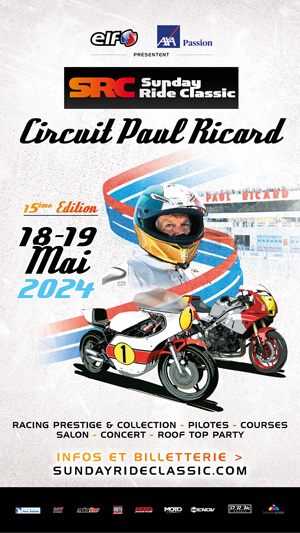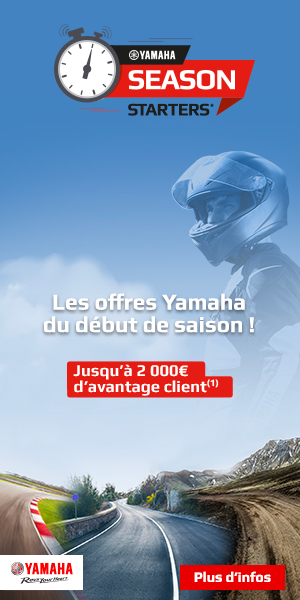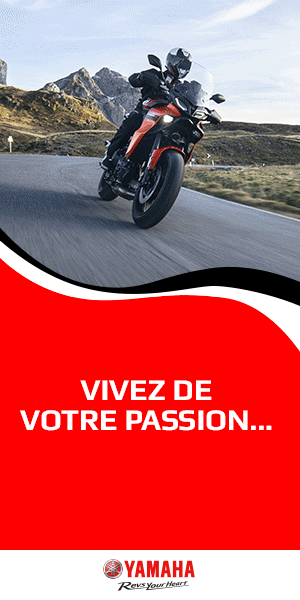Even for the general public, there is no doubt that Johann zarco is a high-level athlete, since outside of the Grands Prix we see him, for example, regularly cycling up Mont Ventoux or freediving.
However, on numerous occasions, the French champion has mentioned in his race debriefs that he could suffer from a lack of energy in the second part of the race, due to a physically demanding Ducati. We also saw a blatant example of this with his reactions in the “cool room” after his second place obtained at the Sachsenring.
How can we make us, poor basic bikers, understand how physically difficult it is to ride a MotoGP, whether it is muscular, cardiac or breathing?
We asked to Romain Guillot, the physical trainer of Johann zarco, to enlighten us…
Romain Guillot : " It is not easy to do this analysis because the answers are always multifactorial. I'm not necessarily talking about Johann's particular case, but on a theoretical level you can have a drop in energy simply because you are a little less well trained than others, and that day the intensity is such that you can't maintain it. It happens to all athletes, whatever the sport. But afterwards, the drop in energy may be because you're not really comfortable with a particular track. You have a motorcycle setting that allows you to go fast, but to be able to go fast you compensate more than you should. So you manage to maintain a certain rhythm for a few laps, but at a certain point, because you have physically compensated for the lack of ease on your bike and on the track, you have less margin and if you don't want to put yourself on the ground, your time is worse. It's always a fair balance between general physical fitness, and that's why you have to be super trained otherwise you can't ride a MotoGP, and manage to find the right compromise between performance and comfort, if I can say so since these are prototypes anyway which are absolutely not comfortable. The driver must be able to have the impression of going fast without forcing. It's always a matter of balance between the two, because if you only compensate with the physical, it can surely work but it's not sure that it will work for very long. »
MotoGP is not more demanding in a particular area, muscular or cardiac? It is a set ?
« Yes, it's a set. Afterwards, it also changes depending on the tracks. For example in Austin, which is a priori a very physical and very demanding circuit, there you will perhaps have muscular tetany which will occur. This is why many have had surgery for compartment syndrome. So depending on the characteristics of the circuits, perhaps once it will be more muscularly demanding, for example to brake. Afterwards, on circuits like in Malaysia where it is very hot and very humid, it is clearly endurance and your ability to resist the heat which will be the impactful factor in your drop in energy. That's why I told you it was always multifactorial. »
If we ask you Johann's strong point physically?
« (Laughs) it's difficult to answer that because all MotoGP riders are all very complete. And then afterwards, you're going to ask me the weak point, so I won't know how to answer (laughs). »
Can you tell us about the heart rate, because for us the general public the numbers we see on the screen are quite disparate but all impressive?
« To simplify for the general public, because afterward people always come and say “yes but…”, if only because of the aspect of speed, the heart rate will in any case rise very high for the driver. When we take a ride on a carousel, while we are just sitting in a car, the notion of speed makes our pace accelerate, even if we have done nothing and have not moved from our seat . That's a first notion. Afterwards, in any case, the pilots are on a machine which they will try to control and which they will almost try to resist rather than act on it. When accelerating, it's so powerful that you have to make sure you don't get thrown off, so you're going to hold on, with your arms and legs. When braking, it's the same, you have to deal with going from 250 to 100 km/h suddenly, and again, it's with your arms and legs. All of this, at any given moment, is a very significant physical effort which, combined with the speed, makes your heart beat very quickly, and you have very few moments to rest! This is perhaps what people have difficulty realizing, telling themselves that they are “only” riding a motorcycle: but these motorcycles are prototypes and we cannot imagine, me first, the efforts that it requires. So we don't realize the effort there is, which is always in the resistance, to prevent the bike somewhere from punishing the rider. Ultimately, it's a bit like the rodeo: if you don't control your mount, it sends you out. »
What also surprises the general public, again with regard to heart rate, is the big difference that there is, for example, between Maverick Viñales and the others…
« Honestly, I also have a hard time understanding, so I can't answer this question. »
On the starting grid, is stress an important factor in increasing heart rate?
«
Yes, it raises it, but not very high because at this level they are used to managing stress. So that's not what really influences it, but as soon as the engine starts and you start to do your first lap, it's gone and after that it climbs quite quickly with the first turns. After the moment of departure, it rises quite quickly, and after that it is constant. The goal is to have the lowest heart rate possible throughout the race. The lower your heart rate, the more, somewhere, it will mean that you are in total control of your machine, beyond the fact that you are well trained. Of course, if you are not well trained, at some point it will be difficult that your heart is low, even if you master your machine perfectly. This is why you need to be very trained, and at the same time have good control of your machine. And having good control of your machine does not necessarily mean a machine that completely matches your style: good control of your machine means being able to do what is necessary to make your machine work as well as possible.
»
How long does it take for the heart to return to its normal rhythm once you cross the finish line?
« It goes pretty quickly. After the lap of honor, they almost returned to their level. »
